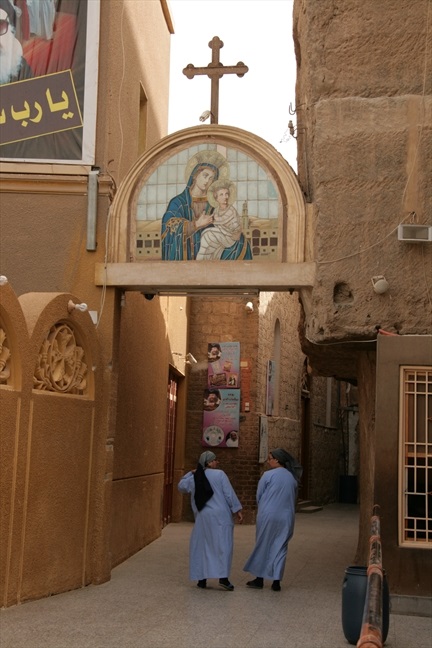
Egypt’s Minister of Religious Affairs, Mokhtar Gomaa, has said that churches, as well as mosques, have the legal right to be protected.
He said this in response to a controversy involving Sheikh Abdullah Roshdy, who in a TV show said Muslims should not “congratulate non-Muslims on their religious occasions that express what Islam considers to be acts of unbelief”, Egypt Today reported.
Gomaa said the sheikh’s comments “incited violence against Christians”. He added that the sheikh would no longer be allowed to speak in public or to preach, and that he would instead be given a research position within the Ministry of Religious Affairs.
In May last year, Roshdy who is also a scholar at Al-Azhar University and imam of a Cairo mosque, backed another sheikh, Salem Abdul Jalil, after the latter was charged for making anti-Christian comments on a TV show.
‘Islam guarantees protection’
Meanwhile, in an article for Egypt Today, Jehad El-Sayed wrote that, based on verses from the Quran, “Islam guarantees the protection of Jews, Christians, and other non-Muslims who reside in Muslim lands. Their houses of worship should be defended from attack and their right to worship according to their choice respected”.
But, as World Watch Monitor has reported, some Egyptian Muslims, following the teaching of influential Salafist cleric Ahmed al-Naquib, believe “it is not permissible to build churches in the lands of Islam … even if the ruler allows otherwise”.
In many rural villages this has led to tension between radical Muslims and Copts, often resulting in attacks or churches being closed for security reasons.
A security guard was killed yesterday (31 January) outside a Coptic church in El-Arish, North Sinai. The Coptic news site Watani reported that the 21-year-old soldier was standing on guard in one of the watchtowers near Abu-Seifein Church, when he was shot dead by a sniper.
Hundreds of Christians have fled El-Arish in the last year, after Islamists posted videos and leaflets telling Copts to leave the area or be killed.
Militants belonging to the ‘State of Sinai’ group in Egypt repeated the threat last month, saying they would “kill more Copts”.
‘Discrimination coming to an end’
Last week, Coptic Pope Tawadros II reportedly said that the discrimination of Copts in Egypt was coming to an end, underlining the improved relations between Egypt’s government and the Church.
He underlined several developments. In 2016 the government passed a new church-building law, while in October 2017 a cabinet committee started work on the legalisation of unlicensed churches, including 2,650 applications from Copts.
Then, in January 2018 the Ministry of Housing announced that Christians were allowed to meet in unlicensed churches while their registration applications were processed.
Egypt’s parliament has denied claims that there is a “culture of impunity for attacks on Christians” and has said the Muslim Brotherhood is to blame for promoting the idea that there is a conflict between Egyptian Muslims and Christians.
However, the 2018 World Watch List, published by the charity Open Doors, classified Egypt as the 17th most difficult country in which to live as a Christian, after 128 Egyptian Christians were killed in religiously motivated attacks last year.